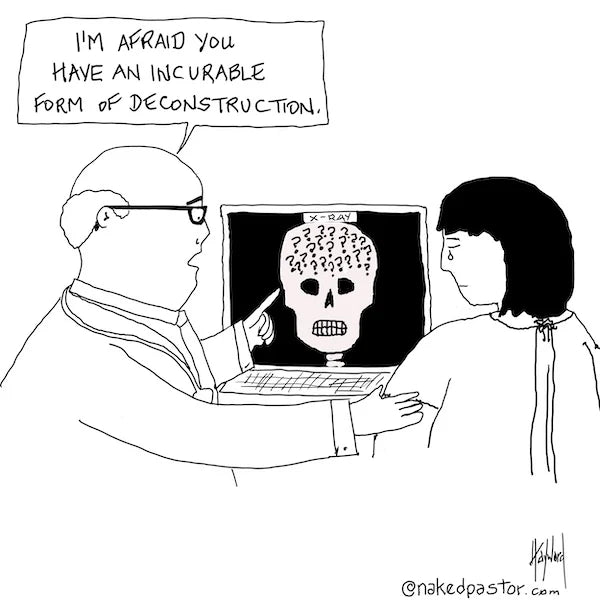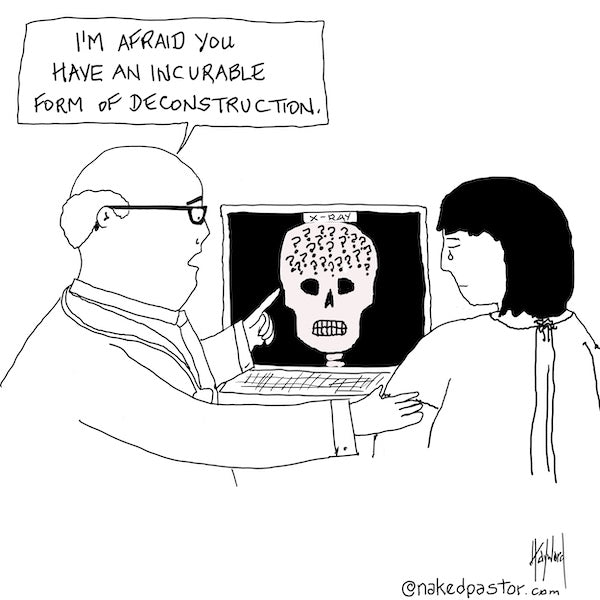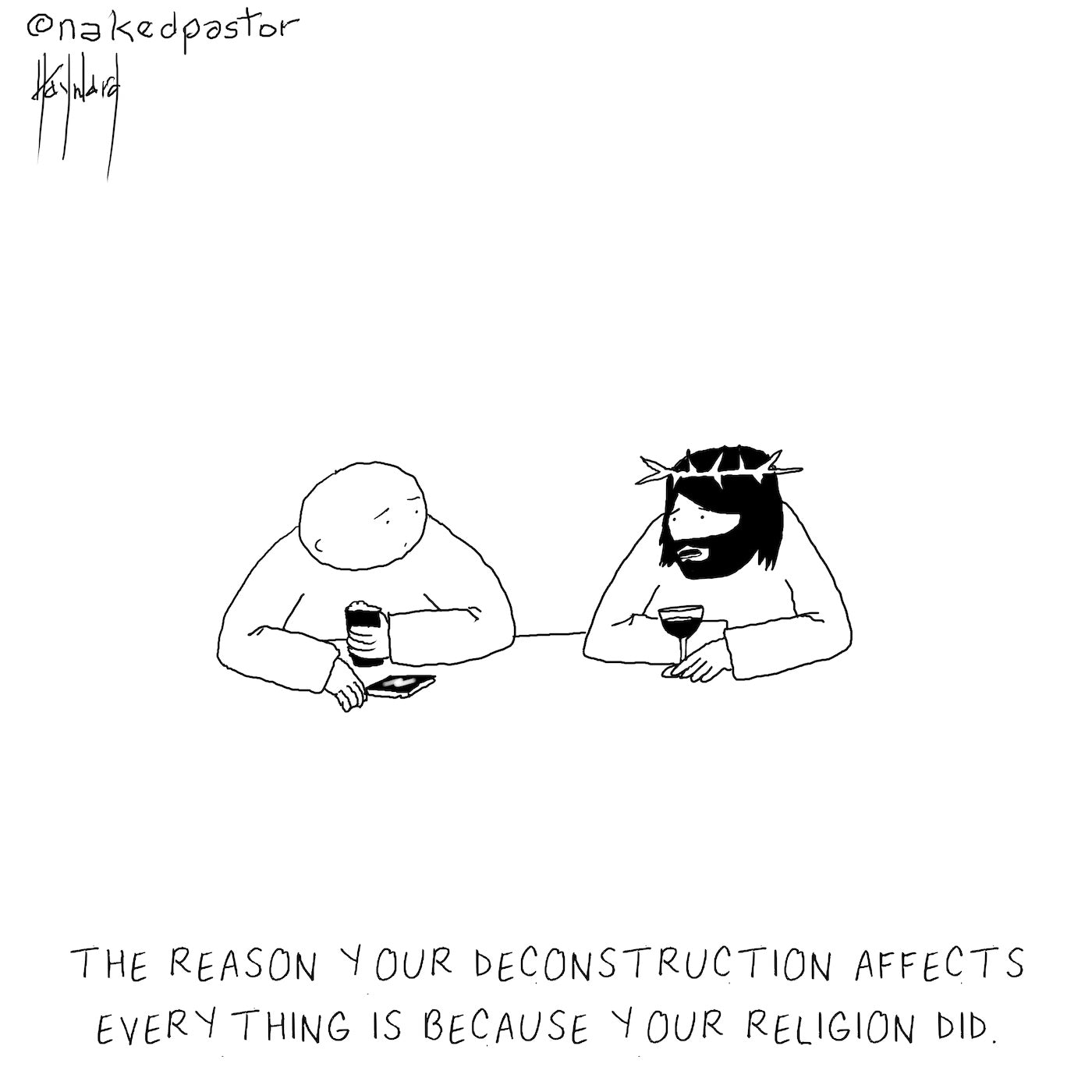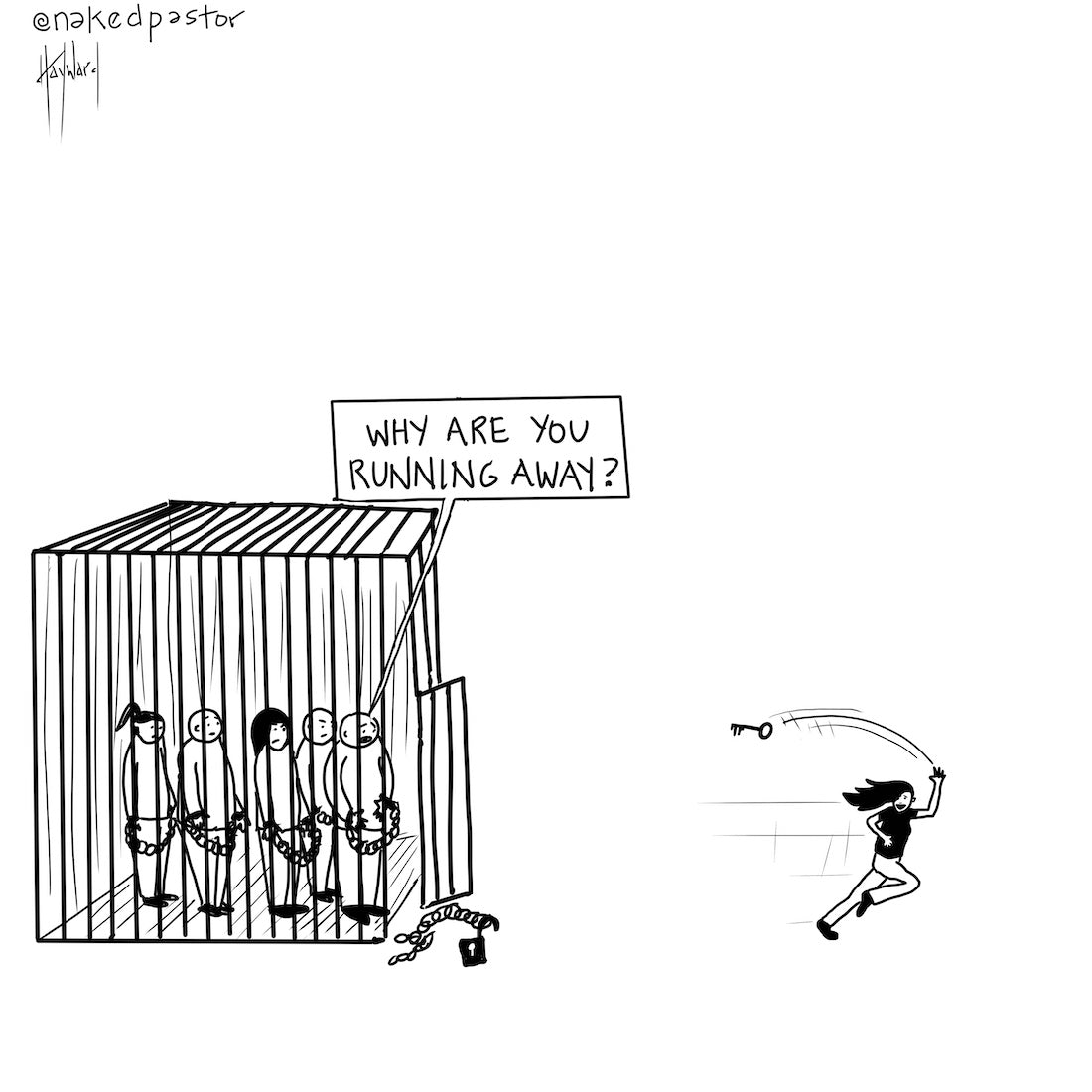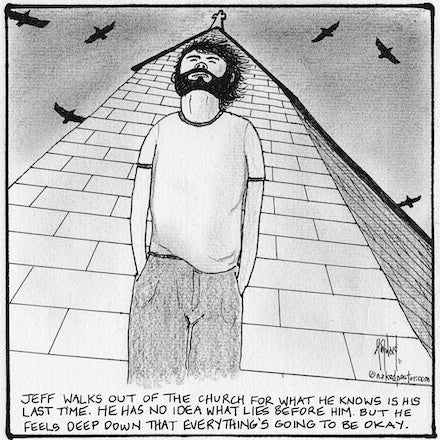I don’t know if you’ve noticed, but I use the word deconstruction A LOT. I assume everyone understands it, which is a bit presumptuous (sorry). So I decided to write an in-depth blog post on the subject, with links to various other articles relating to deconstruction. I hope it helps someone (actually loads of people) out there make sense of their spiritual journey.
What is Deconstruction of Faith?
That’s a good question. You know me, I love questions. Although questions are not encouraged in most religious circles, I believe that questions are the answer (so much so that I actually wrote a book about it.
Deconstruction of Christian faith refers to the process of critically examining and dismantling previously held beliefs, doctrines, and practices associated with one's religious upbringing. It involves questioning and reevaluating the tenets of faith, often leading to a reformation or even abandonment of certain beliefs. This process is deeply personal and can be driven by a desire for a more authentic and individualized spirituality.
Deconstruction Is Not A Movement
I claim that deconstruction isn’t a movement. Mainly because deconstruction isn’t new. Some critics of deconstruction would like to claim that it’s a movement to demonize it as a great apostasy predicted to occur in the last days, where believers backslide from the faith, revolt, and abandon the church because of heresy and temptation to sin. However, deconstruction isn’t a new phenomenon, but has always existed. People always everywhere have questioned their beliefs, as they should. Because it’s a natural, healthy, and even necessary factor in spiritual growth. Another reason why I resist efforts to call deconstruction a movement is because it is an attempt to categorize, label, and demonize people. If you can categorize people, the next step is to marginalize and separate them. If people who are deconstructing are identified as a group, sure enough they will become the targets of rebuke, rejection, and ridicule.
How I Started my Journey of Christian Deconstruction
Back in 2009 I participated in a hermeneutics workshop (hermeneutics is the branch of knowledge that deals with interpretation, especially of the Bible or literary texts). We were to prepare by reading books supporting conservative hermeneutical approaches to scripture while dismissing liberal ones.
I read them with fascination.
The workshop echoed the books’ defense of traditional hermeneutical approaches. But I loved the ideas of the philosophers (such as Derrida, the father of deconstruction) who were dismissed. The workshop had the opposite intended effect. I was converted! I coopted the word “deconstruction” because it related so well to what I was experiencing in my own spiritual journey. I started using the word to describe the questioning of our beliefs, the faith, and our relationship to religious authority and the church.
People started calling me a deconstructionist.
My deconstruction of faith began decades ago by questioning the inspiration of scripture. Then, decades later after wrestling with this, a spiritual kind of epiphany resolved my long struggle with the Bible. I experienced a powerful flash of insight that there is one reality and only language seems to divide us. It liberated me into a new lease on my spiritual life.
The Pros and Cons of Religious Deconstruction
Religious deconstruction is not all epiphanies, proverbial rays of light and “ahaaaaaa” moments. Deconstruction is often a terrifying process. Why? Well, it’s the questioning of certainty and accepted truth. It’s the erosion of the beliefs we inherited and adopted. It’s the crumbling of the foundation and structure of our spiritual lives. As you can imagine, it rocks our core and our perception of reality.
Here’s some of the good, bad and ugly things you can expect on your journey of Christian deconstruction.
Awesome Things About the Deconstruction of Faith:
- Authenticity: Deconstructing beliefs can lead to a more authentic and personal faith that aligns with your true beliefs and values. You don’t have to pretend to believe things you don’t or pretend to be someone you are not. It makes you feel a whole lot lighter - ask me, I know.
- Freedom: Breaking away from rigid doctrines can provide a sense of liberation and autonomy in your spiritual journey. It’s like that Fleetwood Mac song - “You can go your own way.” You will feel and be free to grow in your own direction, without the fear of damnation and without being told it is wrong.
- Personal Growth: Deconstruction encourages intellectual and spiritual growth, which creates a deeper understanding of yourself and your beliefs. When you know yourself, your understanding of everything else is expanded.
- Community: When you are authentic, you can find and hang out with people who like you for who you are, not just for what you believe. You can make friends who love you unconditionally and without judgement.
Not So Awesome Things About the Deconstruction of Faith:
- Isolation: The journey can be lonely and isolating, especially if friends and family members do not understand or support the process. Usually, our relationship with the Church is affected and many people leave because radical questioning isn’t welcomed. It’s considered rebellious, backsliding, a denial of Christ, and a rejection of God.
- Uncertainty: Faith deconstruction can be a profound and transformative experience, but it often comes with a lot of uncertainty. When you question and dismantle long-held beliefs, you may find yourself in a state of confusion and disorientation. This is totally normal and something you can eventually work through.
- Conflict: Differing beliefs can cause tension and conflict within personal relationships and communities. Your family and friends may take it very personally and feel as though you are leaving them, not just your faith. If you have a spouse or partner who is not deconstructing, this can be especially hard (see this book I wrote or this YouTube video I made for advice based on my own experience).
- A Sense of Loss: You might feel deep sadness, as cherished beliefs and traditions are questioned or abandoned. For example, you may miss the comfort of church on a Sunday or the tradition of communion or meeting with church groups.
I just want you to know you are not alone on your journey
Religious deconstruction is nothing to be ashamed of. Instead, it’s something to be proud of, embraced, and enjoyed. Because deconstruction is growth!
That said, it takes patience and a ton of work. It took me years to deconstruct. Like…DECADES. And in that process, I learned a lot. I believe that everyone deserves to deconstruct safely, without judgment, and with as much support as possible, which is why I've decided to share my deconstruction course for free on Youtube.
You can watch all the videos now starting with this one.
I wish you all the best in your spiritual independence and travels!

